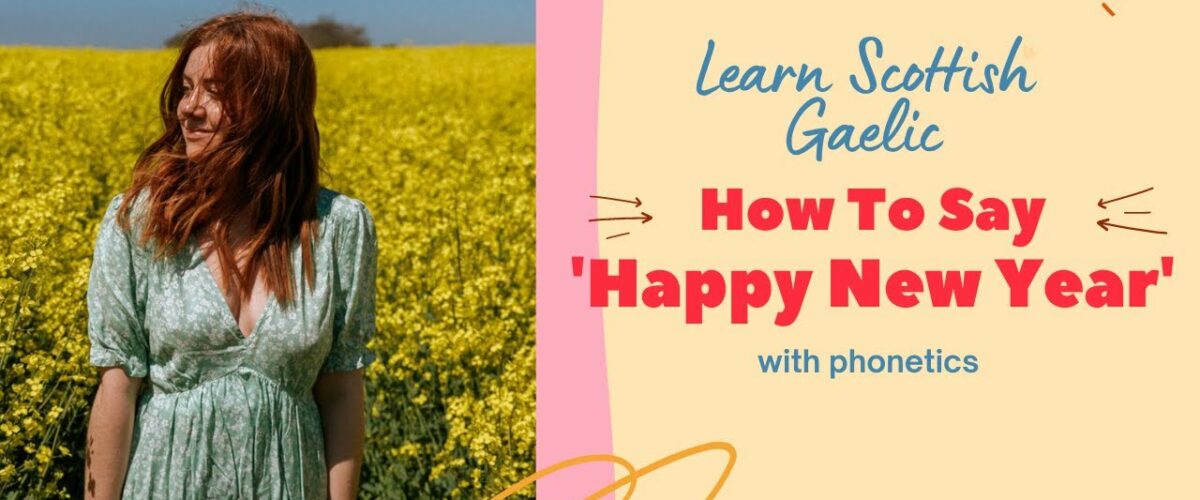subsequently What does Lang may your lum reek mean? Lang may yer lum reek literally translates to “Long may your chimney smoke!“, signifying “may you live long”
What does HAUD Hogmanay mean? In the Scots language New Years Eve has been known as Hogmanay since at least the 17th century. It is thought to derive from the French for a New Years Eve gift. In Scots we say haud Hogmanay for celebrate the end of the old year and, once the New Year comes in, we call it Nerday or Neerday New Years Day.
as well How do you pronounce Hogmanay in Scottish? Hogmanay (Scots: [ˌhɔɡməˈneː];[1] English: /ˌhɒɡməˈneɪ/ HOG-mə-NAY[2]) is the Scots word for the last day of the year and is synonymous with the celebration of the New Year (Gregorian calendar) in the Scottish manner.
How do you say cheers in Scottish Gaelic?
There are so different ways to say “cheers” in many countries all over the world, however, in Scotland, it’s Slàinte Mhath! Irish or Scots Gaelic? The term Slàinte Mhath (Pronounced Slanj-a-va) is actually both Irish and Scots Gaelic.
What is Haud yer Wheesht? Haud Yer Wheesht.
Translation: Please stop talking ASAP.
identically How do you say thank you in Scottish?
What does Granny GREY hips mean? Granny grey hips. Means : Someone behaving older than they are.
How do you say Happy Christmas in Scotland?
In modern Christmas cards produced in the Scots language it is usual to see the message ‘A Blithe Yule‘ meaning ‘Happy Christmas’ or even ‘A Cantie Yule’ meaning ‘Cheerful or pleasant Christmas’.
What country calls Oshogatsu its New Year’s name? In Japan our new year is celebrated with traditions and customs that I would like to share with you in this article. Our New Year’s is called “Gantan,” and “Oshogatsu,” which includes the first three days of January. Oshogatsu carries a lot of weight for Japanese people.
Why is Scots pie on New Years?
SCOTS love a steak pie to celebrate the New Year and cannot get enough of them, according to an industry expert. … He said: “One theory holds that steak pie became the national dish at New Years because January 1 wasn’t generally taken as a holiday so families were too busy to cook,” said Mr McColl.
How is Edinburgh pronounced? Edinburgh is pronounced /’ɛdɪnbᵊrə/. That means to say that it is pronounced as either “EDD-in-buh-ruh” or “EDD-in-bruh”.
How do you pronounce HAUD Hogmanay?
How do Scottish say hello?
Scots is considered a separate language from Scottish English and from the English of England, and is recognised as such by the Scottish and UK governments.
…
Useful Scots phrases.
| English | Scots Leid (Scots) |
|---|---|
| Hello (General greeting) | Hullo |
| How are you? | Whit like? Whit like are ye? Hoo are ye? Hou’r ye? Hoo’s it gaun? How ye daein? |
How do you respond to slàinte Mhath? In Irish, the response to sláinte is sláinte agatsa, which translates “to your health as well”. The basic Scottish Gaelic equivalent is slàinte (mhath), with the same meaning, to which the normal response is do dheagh shlàinte “your good health”.
What does Slanj mean? Slàinte – Slàinte, pronounced slanj, or slàinte mhath (pronounced slanj uh va) means “Good Health” and is friendly Gaelic toast made before enjoying a whisky in company.
What does GAUN Yersel mean?
Gaun Yersel!
Translation: Go on yourself.
What does HOUL yer Whisht mean? 5. Houl yer whisht. Literally translated as “Please be quiet.”
Where does peely wally come from?
Peely-wally, with the ‘wally’ pronounced to rhyme with rally, not holly, is a Scots adjectival expression meaning pale, wan and off-colour, in the sense of looking unwell and tired.
How do Scottish say hello? Hello’ in Scottish Gaelic is Halò.
How do you say hello in Scottish slang?
How do you say friend in Scottish? What is the Scottish word for friend? Charaid, or Mo Charaid for my friend, is the official answer, but colloquially the terms I have heard most seem to be chum and pal!
What is a wee toot?
toonser (Doric word meaning a city-dweller) toot (Slang word in Scotland for a baby, child, as in “wee toot”)
Why is a worktop called a bunker? “Bunker”
What it usually means: A place to hide from an air raid. What it means in Edinburgh: A kitchen worktop, as in “see if I left ma specs on the bunker.” It seems to have maybe come from the word ‘bonkar’ meaning chest or box.
